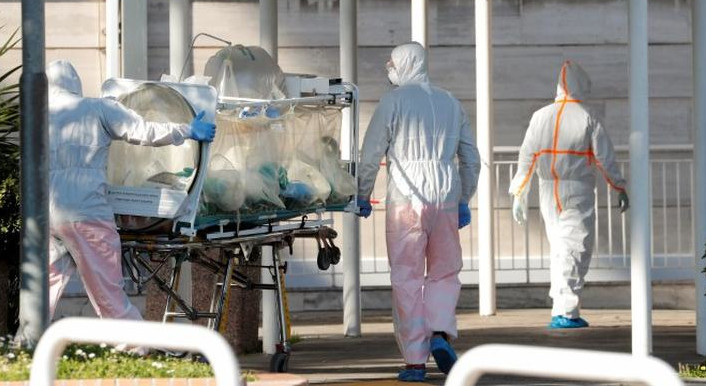
Long Covid: what it is and how to treat it
Long Covid is now a very common condition. The expert explains what it is and what are the most suitable treatment strategies
Extreme fatigue, breathing difficulties, and cognitive fog are just some of the symptoms that characterise many patients who have been cured of Covid-19 but find it difficult to return to their former lives.
Long Covid and Post-Covid Syndrome
Long Covid is a term for a condition in which a patient who has been cured of Covid-19 and is swab-negative continues to experience symptoms related to the disease.
To also give a time frame
- for symptoms lasting between 4 and 12 weeks after the acute event one speaks of persistent symptomatic Covid-19 disease;
- for signs and symptoms persisting for more than 12 weeks after the acute event one speaks of Post Covid-19 Syndrome.
The term Long Covid covers both phases.
Who suffers from Long Covid
According to the WHO, 1 in 4 people with Covid-19 have symptoms that persist 4-5 weeks after the positive finding and 1 in 10 have symptoms after 12 weeks.
Long Covid, therefore, is developed, for reasons not yet known, by some patients who are infected with the new Coronavirus.
It is a condition that can affect individuals of all ages, who may not necessarily have experienced significant clinical symptoms during the acute phase of the infection.
Some factors, however, seem to favour the onset of the condition, including:
- advanced age: the elderly are more likely to develop Long Covid, partly because of their natural frailty and reduced capacity for recovery, which can lead to a possible worsening of the chronic pathologies from which they suffer, with a greater possibility of also developing psychological disorders;
- body mass index: overweight patients seem to be more prone to Long-Covid;
- female sex: possibly due to a stronger autoimmune reaction in women than in men;
- hospitalisation: there seems to be a correlation especially with intensive care hospitalisation;
- presence of chronic diseases.
Long Covid, Multisystem Syndrome and children
Fortunately, Covid-19 is less common in children and statistics indicate that generally, up to now, under 11 years of age there is a lower probability of developing a serious disease.
However, careful follow-up of infected patients must be carried out, also dealing with the possible psychological impact.
Long Covid, which is a sequelae of the disease, should not be confused with MIS-C (Paediatric Multisystem Inflammatory Syndrome), a multi-organ inflammatory condition that can affect children and cause severe damage to various organs such as the lungs, heart and kidneys, and which appears to be due to an abnormal immune system response. In case of the following symptoms
- high fever (hyperpyrexia), resistant to common antipyretics
- breathing difficulties (dyspnoea) and chest pain (precordialgia);
- painful abdominal symptoms
you should immediately consult your doctor.
Main symptoms
Long Covid is a systemic disease, involving various organs, so the symptoms of sufferers are extremely varied and often difficult to link together.
These symptoms can
- occur either singly or in combination
- be transient, intermittent or constant;
- change during the course of the illness.
The ISS, in its Indications on the principles of Long Covid management (ver. 1/07/21), classifies the possible clinical manifestations of Sars-Cov-2 according to the affected organs. Let’s see the main ones.
General symptoms
General symptoms may be
- excessive tiredness and fatigue (asthenia);
- fever;
- muscle and joint pain (myalgia, arthralgia).
Pulmonary symptoms
Pulmonary symptoms may include:
- difficulty in breathing, wheezing;
- persistent cough.
Cardiovascular symptoms of Long Covid
At the cardiovascular level, there may be:
- tachycardia;
- tightness in the chest and chest pain;
- heart rhythm irregularities (arrhythmias);
- altered blood pressure.
Neurological symptoms
At the neurological level there may be
- headache (sometimes not resolvable with painkillers);
- cognitive fog, difficulty in concentrating;
- sleep disorders;
- loss of taste and smell (ageusia, anosmia);
- tingling and numbness in the limbs (peripheral neuropathy).
Psychiatric/psychological symptoms
Psychological and psychiatric symptoms include
- anxiety with possible obsessive-compulsive symptoms;
- depression.
Gastrointestinal symptoms
Gastrointestinal syndromes may occur such as:
- abdominal pain;
- nausea and vomiting
- diarrhoea;
- gastroesophageal reflux.
ENT symptoms
ENT symptoms can be:
- ringing and ringing in the ears (tinnitus) and otalgia;
- sore throat and difficulty swallowing (pharyngodynia, dysphagia);
- alterations in the tone of voice (dysphonia).
Dermatological symptoms of Long Covid
On a dermatological level, one can observe
- papulo-squamous eruptions
- morbilliform rashes
- urticaroid eruptions;
- alopecia.
Haematological symptoms
Observed were
- coagulation alterations (thrombosis of pulmonary vessels and embolism).
Renal symptoms
At renal level there may be
- presence of blood in the urine (haematuria);
- loss of protein in the urine (proteinuria).
Endocrine symptoms
As an endocrine symptom
- hyperglycaemia (diabetes).
These clinical manifestations have an obvious organic basis, which derives from the state of health of the organ they refer to.
For example, respiratory difficulties (dyspnoea, ed.) may be linked to the outcome of pneumonia caused by infection, which can take a long time to heal, sometimes leaving significant pulmonary outcomes.
Similarly, when the heart muscle is affected, alterations in heart rhythm or a decrease in cardiac function may remain, resulting in retrosternal pain and dyspnoea on exertion.
Long Covid: What to do
The patient recovered from the acute phase of Covid-19 may need a dedicated diagnostic and rehabilitation pathway in qualified hospital facilities.
In these facilities, multidisciplinary collaboration makes it possible to provide an integrated diagnostic and therapeutic approach to the patient in need.
Read Also:
Long Covid, Half Of Those Cured In Japan With Persistent Disorders
Fibrocovid: Long Covid Can Lead To Fibromyalgia, A Study By The Rizzoli Hospital In Bologna Reveals



